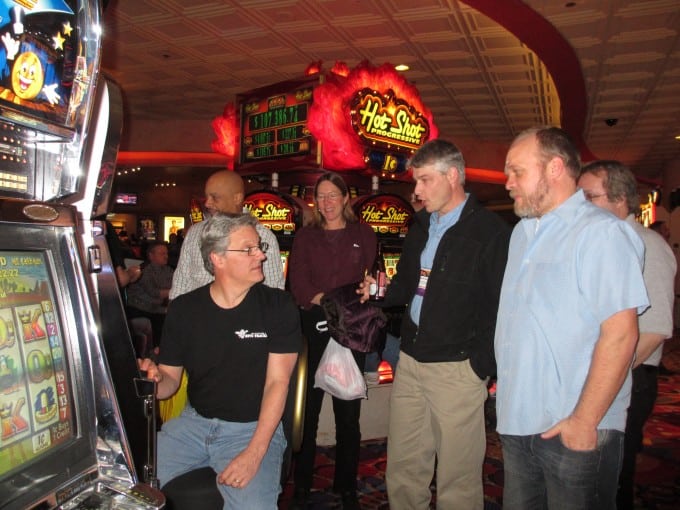
I spent the last week in Las Vegas at the American Beekeeping Federation (ABF) annual conference. Some years the American Honey Producers, the Apiary Inspectors of America, the American Beekeeping Research Conference, and the ABF all meet together. Joint meetings are the best meetings since so many people make it out. If the meetings are separate, then you either have to choose one meeting or spend more than one week traveling. This was not a joint meeting, so attendance was down, but there were some fantastic talks.
I am going to give a quick summary of some the talks I saw and summarize what I learned. Some of these talks address research in progress, so results are not final yet. I will do a couple of talks at a time. I’ll start with a couple of queen breeding talks.
Tom Glenn (queen breeder in Southern CA) talked about how to produce queens for profit. For Tom, the production of instrumentally inseminated queens is about 10x more labor intensive than rearing naturally mated queens. Tom calls drones “studs” and really emphasized the importance of good and diverse drone genes in breeding. He keeps track of queens by using a thumbtack with a plastic cap to write down her information. This way, he only writes her number down once, reducing transcribing errors. VSH daughters need to be at least 50% VSH for the Varroa resistance traits to show (so a 100% VSH queen naturally mated to ≥0% VSH drones).
Mark Spitzig and Melanie Kirby of Zia Queenbee Co. talked about their protocol for selecting queens. They use the survivor stock method of letting their colonies go without much input and breed off the queens whose colonies survive past two years (they recently had a child, so they said the input is even less as of late). Surviving colonies are used either as queen or drone mothers. They mark queens and keep colored tags on the colonies that instantly indicate how old the colony is. They write on white lids for their other notes. They trade queens with other beekeepers to increase their genetic diversity.
